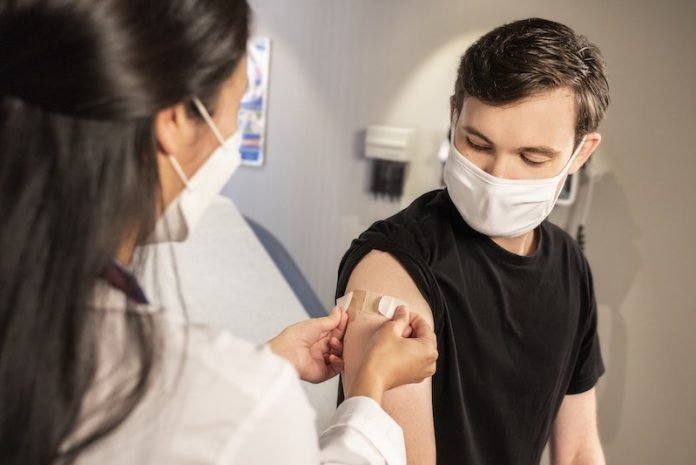
In a new study from Stanford University, researchers found the second dose of a COVID-19 vaccine induces a powerful boost to a part of the immune system that provides broad antiviral protection.
The finding strongly supports the view that the second shot should not be skipped.
The study was designed to find out exactly what effects the vaccine, marketed by Pfizer Inc., has on the numerous components of the immune response.
The researchers analyzed blood samples from 56 healthy volunteers at multiple time points preceding and following the first and second shots..
They counted antibodies, measured levels of immune-signaling proteins and characterized the expression of every single gene in the genome of 242,479 separate immune cells’ type and status.
One key immune-system component examined was T cells: search-and-destroy immune cells that don’t attach themselves to viral particles as antibodies do but rather probe the body’s tissues for cells bearing telltale signs of viral infections. On finding them, they tear those cells up.
In addition, the innate immune system, an assortment of first-responder cells, is now understood to be of immense importance.
The Pfizer vaccine, like the one made by Moderna Inc., works quite differently from the classic vaccines composed of live or dead pathogens, individual proteins or carbohydrates that train the immune system to zero in on a particular microbe and wipe it out.
The Pfizer and Moderna vaccines instead contain genetic recipes for manufacturing the spike protein that SARS-CoV-2, the virus that causes COVID-19, uses to latch on to cells it infects.
The researchers found that the first shot increases SARS-CoV-2-specific antibody levels, as expected, but not nearly as much as the second shot does. The second shot also does things the first shot doesn’t do, or barely does.
The finding suggests the second shot has powerful beneficial effects that far exceed those of the first shot.
It stimulated a manifold increase in antibody levels, a terrific T-cell response that was absent after the first shot alone, and a strikingly enhanced innate immune response.
Unexpectedly, the vaccine—particularly the second dose—caused the massive mobilization of a newly discovered group of first-responder cells that are normally scarce and quiescent.
This special group of monocytes, which are part of the innate museum, constituted only 0.01% of all circulating blood cells prior to vaccination.
But after the second Pfizer vaccine shot, their numbers expanded 100-fold to account for a full 1% of all blood cells.
In addition, their disposition became less inflammatory but more intensely antiviral. They seem uniquely capable of providing broad protection against diverse viral infections.
The team says the extraordinary increase in the frequency of these cells, just a day following booster immunization, is surprising.
It’s possible that these cells may be able to mount a holding action against not only SARS-CoV-2 but against other viruses as well.
The study is published in Nature. One author of the study is Bali Pulendran, Ph.D.
Copyright © 2021 Knowridge Science Report. All rights reserved.



